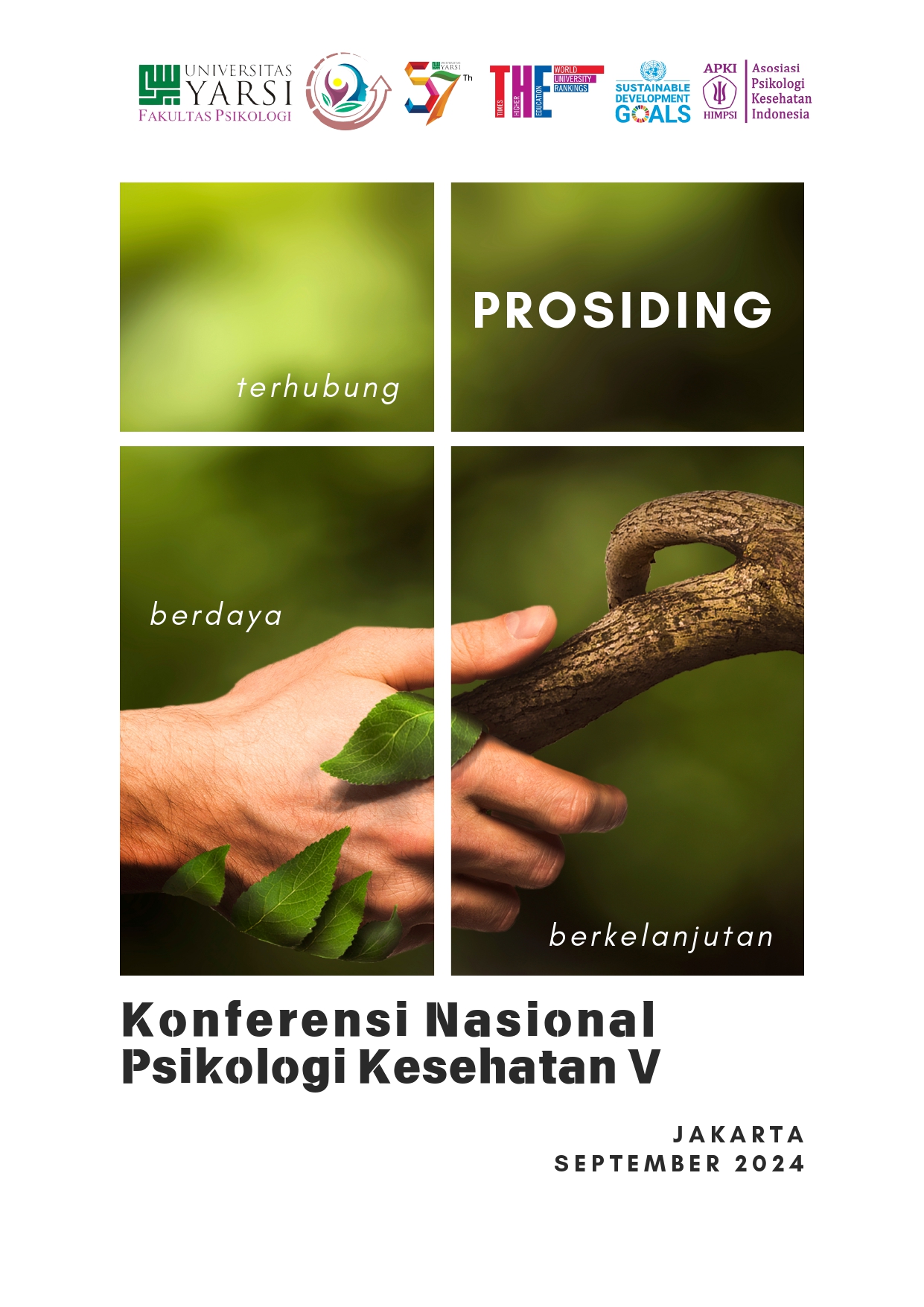Hubungan Afek Positif dan Kemampuan Kognitif pada Anak Prasekolah
Keywords:
afek positif, kemampuan kognitif, prasekolahAbstract
Anak prasekolah dapat dibilang dalam termasuk sebagai golden age, hal ini dikarenakan masa perkembangan anak usia prasekolah mengalami banyak perubahan yang sangat penting terutama pada kemampuan kognitif dan perkembangan psikologis (afek positif). Terdapat beberapa studi ditemukan bahwa afek positif dapat meningkatkan fleksibilitas kognitif individu, serta membantu individu dalam memecahkan masalah secara kreatif. Oleh karena itu, perlu diketahui apakah afek positif dapat berhubungan dengan kemampuan kognitif, terutama pada afek positif anak prasekolah. Penelitian ini bertujuan untuk mengetahui hubungan afek positif dan kemampuan kognitif pada anak prasekolah. Metode penelitian yang digunakan adalah kuantitatif non-eksperimental. Subjek penelitian terdiri dari 100 anak prasekolah dengan rentang usia 3-6 tahun bertempat tinggal di tiga desa Kabupaten Pandeglang. Penelitian ini menggunakan alat ukur face scale test (FST) untuk mengukur afek positif dan Wechsler Preschool and Primary Scale of Intelligence (WPPSI) untuk mengukur kemampuan kognitif. Hasil uji reliabilitas pada alat ukur FST menunjukkan 0.833 dan WPPSI menunjukkan 0.883. Hasil uji statistik korelasi Spearman menunjukkan adanya hubungan yang signifikan antara afek positif dan kemampuan kognitif (rs = 0.218*, p=0.029). Artinya dapat dikatakan afek positif memiliki hubungan dengan kemampuan kognitif namun tidak kuat.
References
Ashby, F. G., & Isen, A. M. (1999). A neuropsychological theory of positive affect and its influence on cognition. Psychological Review, 106(3), 529. https://doi.org/10.1037/0033-295X.106.3.529
Brand, S., Reimer, T., & Opwis, K. (2007). How do we learn in a negative mood? Effects of a negative mood on transfer and learning. Learning and Instruction, 17(1), 1–16. https://doi.org/10.1016/j.learninstruc.2006.11.002
Cianci, A. M., & Bierstaker, J. (2009). Auditors' efficiency motivated evaluation. Advances in Accounting, 25(1), 20–27. https://doi.org/10.1016/j.adiac.2009.03.002
Davis, M., & Suveg, C. (2014). Focusing on the positive: A review of the role of child positive affect in developmental psychopathology. Clinical Child and Family Psychology Review, 17, 97–124. https://doi.org/10.1007/s10567-013-0162-y
Demetriou, A., & Spanoudis, G. (2017). From cognitive development to intelligence: Translating developmental mental milestones into intellect. Journal of Intelligence, 5(3), 30. https://doi.org/10.3390/jintelligence5030030
Flanagan, D. P., & Dixon, S. G. (2014). The Cattell-Horn-Carroll Theory of Cognitive Abilities. In C. R. Reynolds, K. J. Vannest, & E. Fletcher-Janzen (Eds.), Encyclopedia of Special Education. https://doi.org/10.1002/9781118660584.ese0431
Fredrickson, B. L. (2001). The role of positive emotions in positive psychology: The broaden-and-build theory of positive emotions. American Psychologist, 56(3), 218. https://doi.org/10.1037/0003-066X.56.3.218
Gendolla, G. H., & Krüsken, J. (2002). Mood state, task demand, and effort-related cardiovascular response. Cognition & Emotion, 16(5), 577–603. https://doi.org/10.1080/02699930143000443
Gizzonio, V., Bazzini, M. C., Marsella, C., Papangelo, P., Rizzolatti, G., & Fabbri‐Destro, M. (2022). Supporting preschoolers’ cognitive development: Short‐and mid‐term effects of fluid reasoning, visuospatial, and motor training. Child Development, 93(1), 134–149. https://doi.org/10.1111/cdev.13678
Holman, D., & Niven, K. (2019). Does interpersonal affect regulation influence others’ task performance? The mediating role of positive mood. European Journal of Work and Organizational Psychology, 28(6), 820–830. https://doi.org/10.1080/1359432X.2019.1658851
Kuhbandner, C., & Pekrun, R. (2013). Joint effects of emotion and color on memory. Emotion, 13(3), 375. https://doi.org/10.1037/a0031821
Subramaniam, K., & Vinogradov, S. (2013). Improving the neural mechanisms of cognition through the pursuit of happiness. Frontiers in Human Neuroscience, 7, 452. https://doi.org/10.3389/fnhum.2013.00452
Shiota, M. N., Sauter, D. A., & Desmet, P. M. (2021). What are ‘positive’ affect and emotion? Current Opinion in Behavioral Sciences, 39, 142–146. https://doi.org/10.1016/j.cobeha.2020.12.003
Sirois, F. M. (2015). A self-regulation resource model of self-compassion and health behavior intentions in emerging adults. Preventive Medicine Reports, 2, 218–222. https://doi.org/10.1016/j.pmedr.2015.03.006
Yang, H., Yang, S., & Isen, A. M. (2013). Positive affect improves working memory: Implications for controlled cognitive processing. Cognition & Emotion, 27(3), 474–482. https://doi.org/10.1080/02699931.2012.713325
Downloads
Published
Issue
Section
License
Copyright (c) 2025 Prosiding Konferensi Nasional Psikologi Kesehatan

This work is licensed under a Creative Commons Attribution-NonCommercial-ShareAlike 4.0 International License.

 Mulyana
Mulyana
 Fakultas Psikologi, Universitas YARSI
Fakultas Psikologi, Universitas YARSI



